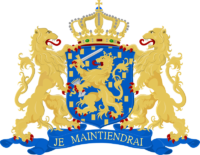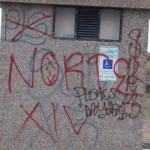Nikolaos Karagiannis & C.J. Polychroniou ~ The Scourge Of Dependency And Globalization In The Caribbean
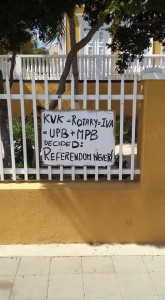 truth-out.org. April 2015. Historically, the Caribbean countries developed under the tutelage of different European empires, and more recently under North American dominance. As a result, the Caribbean came to be a classic area of plantation society as there is a certain unity to the region’s development and in its patterns of historical evolution. Furthermore, the plantation economy models emphasized the historical continuity of Caribbean dependence from the slave plantation to modification following emancipation, to further modification in the post-colonial era. Political independence established national sovereignty (i.e., “flag independence”) in older and newer nations of the Commonwealth Caribbean, when both groups were integrated into the international system. Consequently, the political process of national independence converted states, societies and nations that had evolved as integral parts of the global system. The effect was to legitimize their autonomy based on concepts of self-determination.
truth-out.org. April 2015. Historically, the Caribbean countries developed under the tutelage of different European empires, and more recently under North American dominance. As a result, the Caribbean came to be a classic area of plantation society as there is a certain unity to the region’s development and in its patterns of historical evolution. Furthermore, the plantation economy models emphasized the historical continuity of Caribbean dependence from the slave plantation to modification following emancipation, to further modification in the post-colonial era. Political independence established national sovereignty (i.e., “flag independence”) in older and newer nations of the Commonwealth Caribbean, when both groups were integrated into the international system. Consequently, the political process of national independence converted states, societies and nations that had evolved as integral parts of the global system. The effect was to legitimize their autonomy based on concepts of self-determination.
Read more: http://www.truth-out.org/the-scourge-of-dependency
Archivo Boneiru ~ Geschiedenis en cultuur van Bonaire
 Journalist en auteur Boi Antoin heeft op Bonaire de afgelopen jaren een uitgebreide collectie aan Bonairiaans cultureel erfgoed opgebouwd. Het materiaal is opgeslagen in een ruimte van ongeveer zes bij vier meter. De collectie bevat foto’s uit de 20e eeuw, videobanden, audiotapes, voorwerpen, boeken en documenten. Hoewel het materiaal niet heel oud is, zijn de bewaarcondities op Bonaire verre van ideaal, waardoor de achteruitgang in de materiële staat goed te zien is.
Journalist en auteur Boi Antoin heeft op Bonaire de afgelopen jaren een uitgebreide collectie aan Bonairiaans cultureel erfgoed opgebouwd. Het materiaal is opgeslagen in een ruimte van ongeveer zes bij vier meter. De collectie bevat foto’s uit de 20e eeuw, videobanden, audiotapes, voorwerpen, boeken en documenten. Hoewel het materiaal niet heel oud is, zijn de bewaarcondities op Bonaire verre van ideaal, waardoor de achteruitgang in de materiële staat goed te zien is.
Plataforma Kultural en Fundashon Historiko Kultural Boneriano hebben het initiatief genomen om het aanwezige materiaal te laten digitaliseren en te ontsluiten. Zij werken daarbij samen met Regionaal Archief Dordrecht. Het Nationaal Archief heeft geadviseerd en het Instituut voor Beeld en Geluid neemt een deel van de collectie op haar catalogus.
Archivo Boneiru geeft u toegang tot een grote collectie foto’s, documenten en andere items over het Caribische eiland Bonaire. Het doel van Archivo Boneiru is om de geschiedenis en cultuur van Bonaire te ontsluiten.
Zie: http://www.archivoboneiru.com/
Bonaire.tv ~ Un plataforma digital pa duna informashon audiovisual pa ku Boneiro.
 Bonaire.tv ta un plataforma digital pa duna informashon audiovisual pa ku Boneiro.
Bonaire.tv ta un plataforma digital pa duna informashon audiovisual pa ku Boneiro.
Bonaire.tv is an information platform for Bonaire mainly focusing on Cultural and Historical information.
Zie: http://bonaire.tv
Political Capitalism, Overseas Trade And Ethnic Diversity
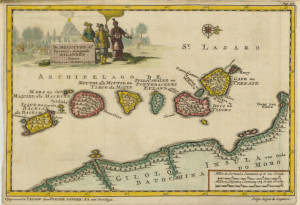 The aim of this paper is to remind modern researchers studying modern, post-Soeharto Indonesia of the research on the history of political capitalism in Asia, including the Indonesian Archipelago done by the Dutch scholar Van Leur. While preparing his well known thesis on the Asian Trade system, he concluded that the Indonesian island group has a bipartite geopolitical structure. This structure consists of a maritime zone of sea routes and coastal urban centres dominated by local and interregional political capitalism, and a peripheral part that stands partly on its own and is in part connected to the first zone. The question he asked was why the Asian type of political trade capitalism had been able to survive for such a long time and had even had been continued by the V.O.C., while in Europe this form of capitalism had long disappeared.
The aim of this paper is to remind modern researchers studying modern, post-Soeharto Indonesia of the research on the history of political capitalism in Asia, including the Indonesian Archipelago done by the Dutch scholar Van Leur. While preparing his well known thesis on the Asian Trade system, he concluded that the Indonesian island group has a bipartite geopolitical structure. This structure consists of a maritime zone of sea routes and coastal urban centres dominated by local and interregional political capitalism, and a peripheral part that stands partly on its own and is in part connected to the first zone. The question he asked was why the Asian type of political trade capitalism had been able to survive for such a long time and had even had been continued by the V.O.C., while in Europe this form of capitalism had long disappeared.
Today these questions once again become interesting as we become progressively aware that, on both the national and the regional level, the Soeharto regime that fell in 1998 was fuelled by a type of political capitalism that came close to what had existed during pre-colonial and early colonial times. And thus the question of the continuity of political capitalism returns to the agenda of modern Asia research.
In the introduction I pointed out that Indonesia’s recent ethnic tensions occurred especially in the coastal cities and coastal areas where Indonesia’s strategic resources are located, and not to any great degree in the interiors of the major islands. In the course of Indonesia’s long history, many ethnic groups have evidently settled in and around the coastal cities, where they live together. This geographical curiosity has its roots in Indonesia’s past as an international emporium and trade port in the overseas trade between India en China, as well as at certain times between Asia and Europe. This trade needed ports of call [i] under the control and protection of local rulers. These rulers allowed foreigners [ii] that contributed to the settlement’s trade to settle in their own wards with their own heads and courts. These wards had a certain measure of diplomatic immunity, turning the ports of call into places with an international population. In this context, foreign businessmen and traders became the driving force behind maritime Asia’s coastal economy. The geographical position of the urban settlements in the archipelago and their mixed populations has not fundamentally changed in the past two thousand years, as is evident from maps 1 through 2.
The question that arises from this historical continuity is whether the underlying political and economic systems have remained unchanged as well. The answer is partly yes and partly not. Partly yes, because, as will become clear in this chapter, the central organizing factor behind the distribution of coastal cities and ethnic communities has been political capitalism, both then and now[iii]. Partly not, because the modern form of political capitalism in Asia, to wit the nationalistic side of the modern nation-state, subjects everything within its borders to its authority and mistrusts foreign businesses and capital because of their excessive power in the world-markets and their danger to the domestic market. Read more
Professional Blindness And Missing The Mark ~ The Historical Analysis Of Four Major Crises During The First Two Decades Of The Republic Of Indonesia
Now complete online: Professional Blindness And Missing The Mark ~ The Historical Analysis Of Four Major Crises During The First Two Decades Of The Republic Of Indonesia.
This book contains six captivating articles about decisive moments in the first two decennia of the Republic of Indonesia’s existence (1945-1965); one per chapter with an introduction. They were presented at the memorial in honor of Professor dr. Wim Wertheim’s centennial birthday in 2008 – the doyen of post-war Dutch Indonesia research.
Each chapter explores a significant event from that era and was written by experienced researchers – Mary van Delden, Saskia Wieringa, Ben White, Pieter Drooglever and Coen Holtzappel – making use of source material that for the most part has been neglected by previous research. The analyses of the material reveal the new Republic’s struggle to bring together, and keep together, the colonial heritage of the Dutch East Indies in one independent and productive Republic of Indonesia. The foundation of a domestically, across the archipelago, and internationally accepted national government, as well as obedient regional governments and obliging armed forces, were deciding factors in this struggle.
Violent confrontations between armed forces and the communist party PKI took place in 1948 during the Indonesian National Revolution, as well as in 1965 after the Republic had already been independent for 14 years. The dividing issue was the power balance between politics and army top in state, government and land. A rigorous break with the past was made in 1965, which saw the installation of a junta regime under the leadership of General Soeharto that stayed in place for the following 32 years. Democracy had to wait until the army top made sure every part of politics and armed forces was finely adapted to work with the other. Not until then would the clock of government, production and control be fully set.
The articles reveal a blind spot in Western research of Indonesian developments in the discussed period; research that from 1965 onward was further, and permanently, influenced by the Indonesian army’s view. The Cold War raged domestically as well as abroad.
CONTENTS
Coen Holtzappel – Preface
Mary van Delden – Internees from the Republic
Coen Holtzappel – The year 1948 and the Madiun affairs, a year of cheat and rumours
Pieter Drooglever – Papua Nationalism. Another blind spot
Coen Holtzappel – The Thirtieth September Movement of 1965, as viewed by the perpetrators – Part One
Coen Holtzappel – The Thirtieth September Movement of 1965, as viewed by the perpetrators – Part Two
Coen Holtzappel – The Thirtieth September Movement of 1965, as viewed by the perpetrators – Part Three
Saskia Eleonora Wieringa – Sexual Slander And The 1965/66 Mass Killings In Indonesia: Political And Methodological Considerations
Ben White – The anthropologist’s blind spot: Clifford Geertz on class, killings and communists in Indonesia
Coen Holtzappel & Pieter Drooglever – Postscript
About the authors
Professional Blindness And Missing The Mark ~ Preface
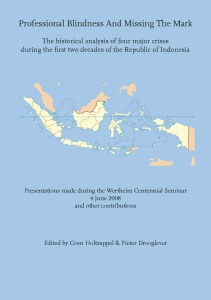 The articles contain the edited versions of the presentations discussed during the Wertheim Seminar, held on June 4, 2008 in the International Institute of Social History (IISH) in Amsterdam. The subject was Blind Spots and Preoccupation in the research on Post War Indonesian Political Crises. The seminar was part of the 3-day Wertheim Centennial. It was hosted by the International Institute of Social History (IISH), the ASIA Platform of the University of Amsterdam and the International Institute of Asian Studies (IIAS) and organized by a team from the Wertheim Foundation, i.e. Ibrahim Isa – secretary, Farida Ishaya – member, Jaap Erkelens – member, and Coen Holtzappel – chairman and convener of the Wertheim seminar. The speakers, guests and audience honored the legacy of Professor Doctor Wim Wertheim with this event, the distinguished academic who after World War II founded the Amsterdam school of the historical sociological analysis of modern Asian history and political development. Wertheim also played an important role in the Dutch and international resistance against the murderous war on Indonesian communism, which President Suharto started after the 1 October 1965 Affair, and his destruction of Indonesia’s Sukarno legacy. The seminar was opened by Emil Schwidder, research staff member of the IISH, with a special task on the China collection. He reminded the audience of the close professional relationship that Professor Wertheim and IISH maintained during his life, and the fact that Wertheim’s children donated their father’s correspondence, publications and other documents and tapes to the institute. The IISH was founded in 1935 and has become one of the leading institutes in the world to rescue, conserve and register important archives of socialist social movements. Before the Second World War, archives were rescued from Austria, Germany and Spain, including papers by Karl Marx and Friedrich Engels. War archives from Eastern Europe, Turkey, the Middle East and Asia followed. The collection of Wertheim’s personal and official correspondence, publications, personal and press photographs is now part of the archives.
The articles contain the edited versions of the presentations discussed during the Wertheim Seminar, held on June 4, 2008 in the International Institute of Social History (IISH) in Amsterdam. The subject was Blind Spots and Preoccupation in the research on Post War Indonesian Political Crises. The seminar was part of the 3-day Wertheim Centennial. It was hosted by the International Institute of Social History (IISH), the ASIA Platform of the University of Amsterdam and the International Institute of Asian Studies (IIAS) and organized by a team from the Wertheim Foundation, i.e. Ibrahim Isa – secretary, Farida Ishaya – member, Jaap Erkelens – member, and Coen Holtzappel – chairman and convener of the Wertheim seminar. The speakers, guests and audience honored the legacy of Professor Doctor Wim Wertheim with this event, the distinguished academic who after World War II founded the Amsterdam school of the historical sociological analysis of modern Asian history and political development. Wertheim also played an important role in the Dutch and international resistance against the murderous war on Indonesian communism, which President Suharto started after the 1 October 1965 Affair, and his destruction of Indonesia’s Sukarno legacy. The seminar was opened by Emil Schwidder, research staff member of the IISH, with a special task on the China collection. He reminded the audience of the close professional relationship that Professor Wertheim and IISH maintained during his life, and the fact that Wertheim’s children donated their father’s correspondence, publications and other documents and tapes to the institute. The IISH was founded in 1935 and has become one of the leading institutes in the world to rescue, conserve and register important archives of socialist social movements. Before the Second World War, archives were rescued from Austria, Germany and Spain, including papers by Karl Marx and Friedrich Engels. War archives from Eastern Europe, Turkey, the Middle East and Asia followed. The collection of Wertheim’s personal and official correspondence, publications, personal and press photographs is now part of the archives.
Coen Holtzappel, convener of the seminar and chairman of the Wertheim Foundation, thanked Emil Schwidder for his kind opening words and welcomed the speakers, the audience, and the special guests. He called to attention the subject of the seminar, i.e. the disturbing role of political and social ignorance, taboos, neglect and denial in the study of historical events and phenomena. They should not be mistaken for “white spots” in our knowledge of the world; i.e. not yet discovered domains of research and phenomena. The real focus is on subjects and domains of knowledge that governments and political elite groups close for research, for example to hide specific aspects of their political behavior, such as crimes, irresponsible wars, blunders, and crimes against humanity. The speakers of the seminar would discuss examples of such disturbances they encountered during their studies of major political crises in and between the Republic Indonesia and the Netherlands during the first two decades of Indonesia’s existence. For many Indonesians, the Netherlands is still the former colonizer and occupier. For many Dutch people Indonesia is the former Netherlands East Indies. They call Indonesian food “Indies food.” According to Wertheim, such ‘blinkers’ have a history. In authoritarian states they are the products of carefully maintained systems of political myth formation, created by elites. To cite the closing statement of Ben White’s chapter in this book, which stems from Wertheim’s Elite and Mass, “The blind and the ignorant, in general, are not busy making themselves or others blind and ignorant. What Wertheim drew our attention to, in contrast, was a process by which elites, and scholars, choose to describe societies and history in ways which made both themselves and others blind to social reality.” In other words, the sources of blindness and ignorance that we should pay attention to, are the elite groups and scholars that use their power and influence to make people look at the things they want them to see and refrain them from looking at things they want them to ignore or deny.
Although I am convinced that such tyrants also exist in people’s personal life, bringing others to crime and suicide, in social and political history we are primarily interested in the political and public social level at which political tyranny occurs. The level where political and religious leaders program people to follow their prejudice and abstain them from using their innate human capacities to study the unknown. In this respect the chapters presented in this book reflect an effort to tackle the problem of how to approach the prejudices in the Dutch-Indonesian discourse about the history of the first decades of Independence War and subsequent decolonization. Instead of the dislikes that burden Dutch and Indonesian views of each other, we should work on a value free and neutral historiography of the shared process of separating Indonesian and Dutch households and interests, and the development of their own ways of continuance. Central in this effort should be the urgent advice to historians, social and political academics to base restudies of past crises and events on the primary sources and eye witness reports. It is the only way to stay as close to the past as possible.
The subjects covered by the seminar are as follows:
[1] The ignorance in Dutch and Indonesian literature regarding the role of the Republican Pemuda units as protectors of Indo-Europeans after the Japanese capitulation. The findings of Mary van Delden appear to challenge conceptions that still exist on both the Indonesian and the Dutch side,
[2] Coen Holtzappel calls attention to General Nasution’s analysis of the roots of the Madiun Affair of 1948 as exposed in Part 8 of his 10 volume Publication on the Indonesian Independence War. Instead of delivering a tale about how he crushed the communist Madiun coup, Nasution went back to his notes, and the available Indonesian and Dutch sources. He produced a study of the registered and unregistered events that caused the Indonesian military Madiun uprising of 1948 and the communist support of it.
[3] Pieter Drooglever emphasizes the ignorance regarding the roots and meaning of Papua nationalism during and after the conflict about the international status of Netherlands New Guinea between the Netherlands and Indonesia.
[4] Holtzappel uses the minutes of the first two martial law trials against two leaders of the Thirtieth September Movement of 1965 to show that Western and Indonesian analysts ignore the conflict that ignited the movement. Their focus is too much on the view of “winner” General Suharto and ignores the view of the “losers” which reveals a different story.
[5] Saskia Wieringa turns our attention to the ignorance and denial after the Reformasi of 1999 of the use of sexual slander against the communist women’s organization Gerwani by General Suharto. Sexual slander was used to stigmatize communism, and communist women in particular; and to legitimize genocide in order to destroy President Sukarno’s political and social legacy. Apparently, Reformasi has not created the clean break with the Suharto past many had hoped for in 1999. There still is no room for reconciliation and truth finding, unlike other countries with a communist past and a dirty war against it.
[6] Ben White points to the conservative roots of a renowned American anthropologist’s unwillingness to analyze the massacre, which fitted existing standards of scientific knowledge and morality. Referring to outsiders in order to explain the massacre as having cultural roots shows elitist escapism. It asks the question but leaves the answer to the anonymous and politically disabled victims and the perpetrators. Read more


